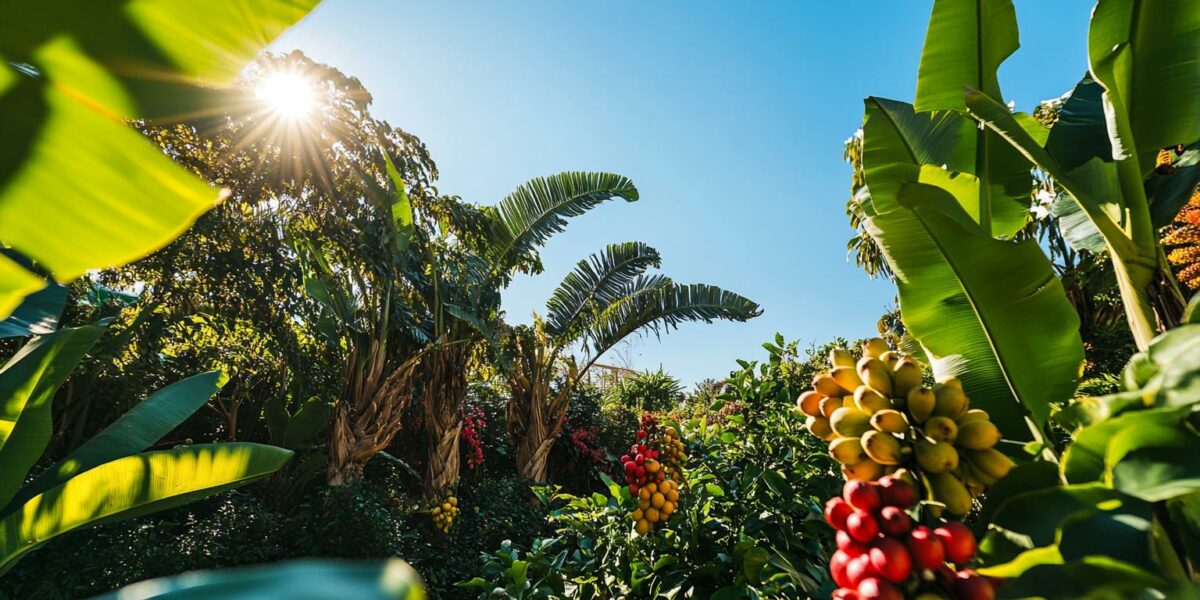A Changing Climate Brings New Crops to Philadelphia
Philadelphia’s warming climate is transforming its agricultural landscape. Bananas, kumquats, and pomegranates are becoming viable alternatives to traditional fruit trees. This shift is driven by rising temperatures that affect the dormancy periods of traditional crops, leading to early blooms and frost damage.
Phil Forsyth, co-director of the Philadelphia Orchard Project, is at the forefront of this change. He observes that some fruit trees, like apricots and Asian plums, are increasingly vulnerable. They bloom early and are subsequently hit by frost, resulting in lost crops.
Forsyth’s extensive knowledge in orchard management highlights the importance of adapting to these changes. He notes that while not all apple and pear varieties will suffer, exploring new options like subtropical and Mediterranean fruits is essential for future resilience.
Behind the Woodlands Cemetery in West Philly, Forsyth’s team is experimenting with these new crops in an unheated high tunnel. This structure harnesses the sun’s energy, providing a warmer environment for exotic plants like bananas and hardy citrus trees.
Innovative Solutions for a Warming World
The Philadelphia Orchard Project’s high tunnel serves as a testing ground for crops that may soon thrive outdoors. The structure, made of metal hoops and plastic sheeting, captures solar heat. Inside, plants like olive trees, banana trees, and Chilean guavas are flourishing even in cooler months.
Forsyth explains, “It’s a simple yet effective way to create a microclimate for these plants.” On hot days, the plastic sheeting is rolled up, allowing proper ventilation for the growing plants.
These efforts are part of a broader strategy to prepare for the changes ahead. Forsyth emphasizes the importance of:
- Planting diverse fruit trees
- Creating resilient agricultural systems
- Reducing dependency on traditional crops
By experimenting with subtropical and Mediterranean fruits, Forsyth and his team aim to ensure Philadelphia’s orchards remain productive despite the shifting climate.
Adapting to New USDA Plant Hardiness Zones
Recent updates to the USDA’s plant hardiness zone maps reflect these climatic shifts. Philadelphia has moved from zone 7A to 7B, with parts of Delaware County nearing zone 8. Forsyth predicts that zone 8 could soon encompass Philadelphia.
This new classification means that plants previously unsuitable for the region may now thrive. Forsyth’s experiments with zone 8 plants, like hardy citrus and bananas, are preparing for this future reality.
“The goal is to grow plants not yet viable outdoors,” Forsyth says. “In the coming decades, these plants could become staples in Philadelphia’s gardens.”
Forsyth also highlights the importance of planting trees to combat climate change. The Philadelphia Orchard Project’s efforts have resulted in over 1,600 fruit trees producing 11,700 pounds of fruit annually, contributing to carbon sequestration and reduced fossil fuel use.
Urban Orchards: A Dual Benefit for the Environment
Urban orchards offer a double benefit for the environment. They not only absorb atmospheric carbon but also reduce the need for food produced elsewhere, cutting down on transportation and refrigeration emissions. Forsyth states, “This is an essential approach to mitigate the climate crisis.”
The Philadelphia Orchard Project’s mission aligns with this vision. By planting trees in vacant lots, school yards, and gardens, they are creating green spaces that provide fresh produce and environmental benefits.
Forsyth believes that urban orchards are a powerful tool in the fight against climate change. “Plant trees in your yard, plant them in vacant lots. This is the best tool we have to balance the climate crisis,” he asserts.
Through these initiatives, Philadelphia is not only adapting to a changing climate but also setting an example for other cities to follow. The future may bring new challenges, but innovative solutions like these offer hope and resilience.



Lincoln
This sounds like a fantastic initiative! Can’t wait to taste fresh pomegranates from my garden.
jamesillumination
Are there any health concerns with these new fruits? Just curious.
nathanphoenix
Great work by the Philadelphia Orchard Project! Thanks for leading the way. 🙏
KylieSolstice2
Does this mean we’ll soon have tropical fruit stands all over the city? 😂
Chase
How will these changes affect local farmers’ livelihoods? Are they prepared?
theodoreseraphim
Wow, I never thought I’d see bananas growing in Philly! 🍌